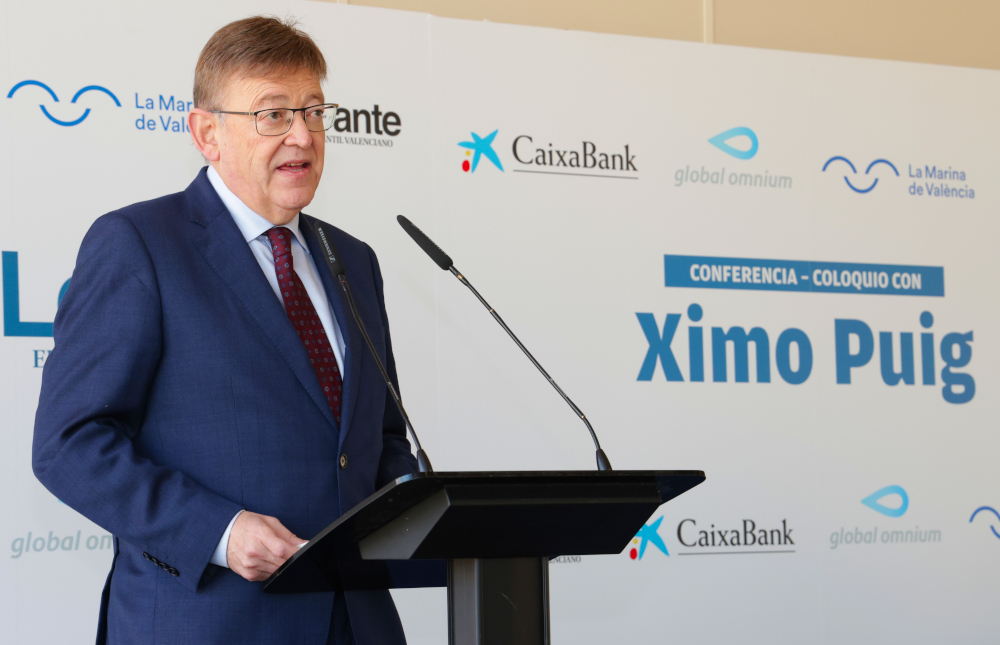Valencia considers expanding COVID passport requirement
President Ximo Puig insists that one must “live with the pandemic” by immunizing themselves with the vaccine and making use of “a mask, social distance, ventilation and common sense.”

Wednesday 15th December 2021 – PRESS RELEASE with Mike Smith
The president of the Generalitat Valenciana, Ximo Puig has announced that the regional government is studying expanding the type of establishments in which the COVID Passport will be required, although he didn’t go into any more details.
During his speech at a conference organised by Foros Levante-EMV, the president explained that the regional government currently has three priority objectives: the protection of health, the creation of employment, and the expansion of economic resources for the Comunidad Valenciana, from both European funds and “fair” autonomous financing.
Puig has insisted that we must “live with the pandemic” by getting immunized with the vaccine and using “a mask, social distancing, ventilation and common sense” and has called for responsibility during the celebration of the forthcoming Christmas holidays.
He reported that the current vaccinated population in the Comunidad Valenciana is 93.3%, which he has described as “the greatest collective achievement in many decades”, and has explained that the vaccination of the minors, whose immunization begins today Wednesday, as well as the provision of the booster dose “as a priority to essential and vulnerable personnel”, and to those over 40 years of age “as soon as possible”.
Likewise, he announced that the Generalitat Valenciana’s Valencian Vaccine Research Program (ProVaVac) has developed a new line of research on Persistent COVID-19, with which it is intended to evaluate the chronic impact in patients who have overcome the acute disease and deploy care strategies that minimize this impact on the population.
Pact for territorial and social cohesion
During his speech, Ximo Puig claimed that the European recovery funds and the new regional financing constitute two “key” areas for 2022. In this sense, he has offered a great agreement to guarantee territorial and social cohesion, to which both the government of Spain and all the autonomous communities and parliamentary groups are “obliged” to approve the new autonomous financing system.
The president has valued that the document presented by the Spanish Government focuses on the reform of the financing system based on the adjusted population, as called for by the Comunidad Valenciana, and has claimed that there are no factors that completely distort the allocation of resources by the adjusted population criterion; as well as additional resources to adequately meet the needs of the Valencian welfare state and development policies, in addition to the State assuming the Valencian debt accumulated by the under-financing suffered.
Puig insisted that the Comunidad Valenciana is the territory that has worked the most for the “viable Spain of the Spains” through fair financing, decentralization and the vindication of diversity, which is why it has shown itself willing to “negotiate with rigor and with a predisposition to the agreement”, although he has warned that he will not accept “a difference in financing per capita that is unaffordable like the current one.”
Regarding European funds, he explained that the Generalitat Valenciana is intensifying work with Valencian business community to participate in the largest possible number of large strategic projects for recovery and transformation (PERTE).
Likewise, he has referred to the distribution of European funds that takes place in the different sectoral conferences, through which in 2021 the Comunidad Valenciana has received 985 million euros, and has shown his hope that in 2022, this amount will be increased.
Job Creation
With regard to job creation, the president has ensured that the Comunidad Valenciana will register a “historical record of workers” in 2022 if the trend of reduction in unemployment registered during the last seven months is maintained.
Specifically, he pointed out that there is currently a difference of 2,700 workers with respect to the historical employment record achieved during the real estate bubble, to which the EREs, the aid provided by Plan RESISTIR and the “immense effort” of companies, self-employed and employees.
He also highlighted that in the last six and a half years the Comunidad Valenciana leads the way in relative job creation in Spain with an increase of 22.2%, which is 8 points above the Spanish average and 154 jobs created every day .
Finally, the president has advocated for dignifying employment, through respect for labour rights, as well as guaranteeing stability and social dialogue, and the commitment to reindustrialization through innovation, improving the efficiency of spending public and public-private collaboration.



